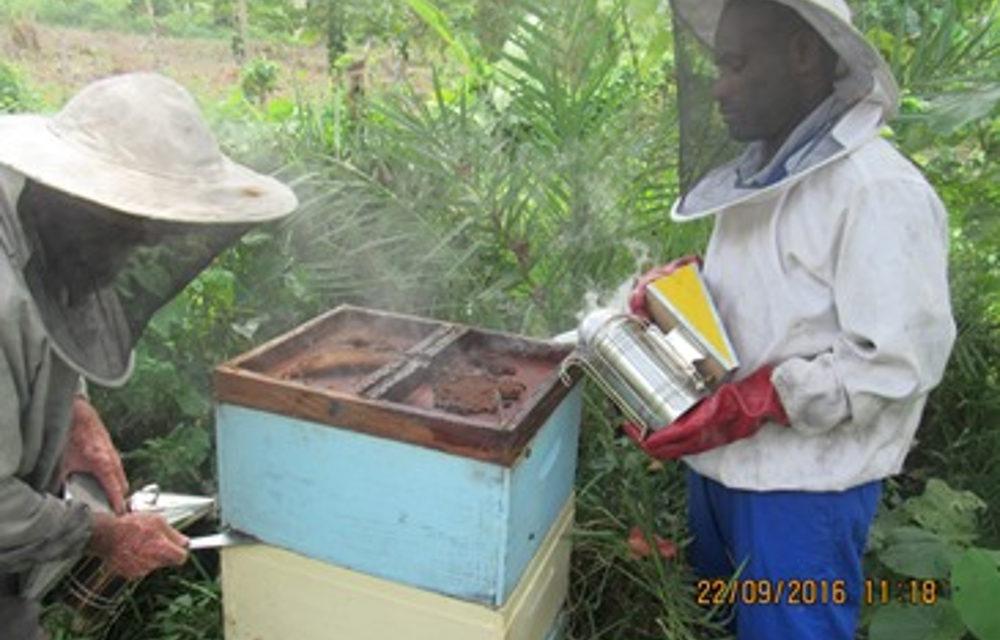The Pacific Community (SPC) in collaboration with Vanuatu’s Ministry of Agriculture, Livestock, Forestry, Fisheries and Biosecurity (MALFFB) recently completed a paravet training course for 22 livestock and biosecurity officers.
The training was launched in May and completed in September, 2016.
The Summer school practical sessions were held at the Department of Livestock in Port Vila and Santo in September for southern and northern region-based trainees respectively. The summer school consisted of revision sessions and final practical, oral and, written assessments conducted by SPC and MALFFB veterinarians.
The animal health and biosecurity officers selected were from the Northern and the Southern region within the Biosecurity department, Department of Livestock, Department of Agriculture and the Vanuatu Agriculture College in Santo.
The 16 week distance learning course module is designed for animal health and production workers in the field who are first contacts for farmers needing assistance.
The course involved hands on training, including practical field activities and tutorial sessions.
Vanuatu MALFFB veterinarians and senior livestock officers who are paravets themselves were assigned the role of local tutors and mentors to the trainees at various work stations.
A paravet trainee and livestock officer based in Santo, Mangau Navian, said, “paravet training has improved my skills in animal husbandry practices and has also built my confidence in handling animals.”
He also said that the skills and knowledge that he has obtained from the training will be passed onto the farmers that he works with.
The approximately VUV 2million training programme, was funded by the Vanuatu MALFFB and coordinated by SPC's Animal Health and Production team as part of the cost-sharing partnership to encourage the sustainability of the paravet training programme in the region.
Vanuatu exports beef overseas to nations such Japan, Solomon Islands and Papua New Guinea and therefore it is important that to have qualified paravets in the animal health and biosecurity department to safeguard the country’s livestock industry and prevent the entry and spread of serious animal diseases.
The paravet training programme implemented by SPC was established to address this issue of lack of veterinarians in the Pacific and non-residence design to allow officers to remain actively in the workforce while on training.
The programme began with a pilot training in Samoa in 2003. Since then, a total of 16 countries have undergone paravet training. To date, there are 436 trained and qualified paravets around the Pacific, 83 of which are females.
A paravet graduate and senior livestock officer for the Northern Province, Stevenson Boe said, “we now have eyes and ears for the veterinarians in the livestock extension department. Whatever cases our farmers comes across, our paravets would tend to them and if it is beyond our control we would inform the vet. There is also no need now to duplicate the positions of animal health officers and extensions as paravets can now do both.”
The Director of the Department of Livestock in Vanuatu, Lonny Bong, said that “the MALFFB acknowledged the continual technical and financial support from SPC and looking forward to see the new paravet trainees deploy to their respective duty stations and assisting the farmers with all aspects of livestock husbandry.”
Graduation for the Vanuatu and Palau paraveterinary trainees are planned for early next year.
Media contacts:
Lonny Bong, Director, Department of Livestock, Port Vila ( [email protected]) + 678 7710062 / 5388083
Tekon Timothy Tumukon, Director, Biosecurity Vanuatu ( [email protected]) + 678 235 19 / 678 335 80
Dr Israel Wore, Senior Veterinary Officer (North), Biosecurity Vanuatu, Luganville, Santo, Vanuatu ( [email protected]) +678 710 4316
Elenoa Salele, SPC Animal Health and Production Information ( [email protected]) +679 732 9647
Dr Ilagi Puana, SPC Animal Health and Production Adviser ( [email protected]
